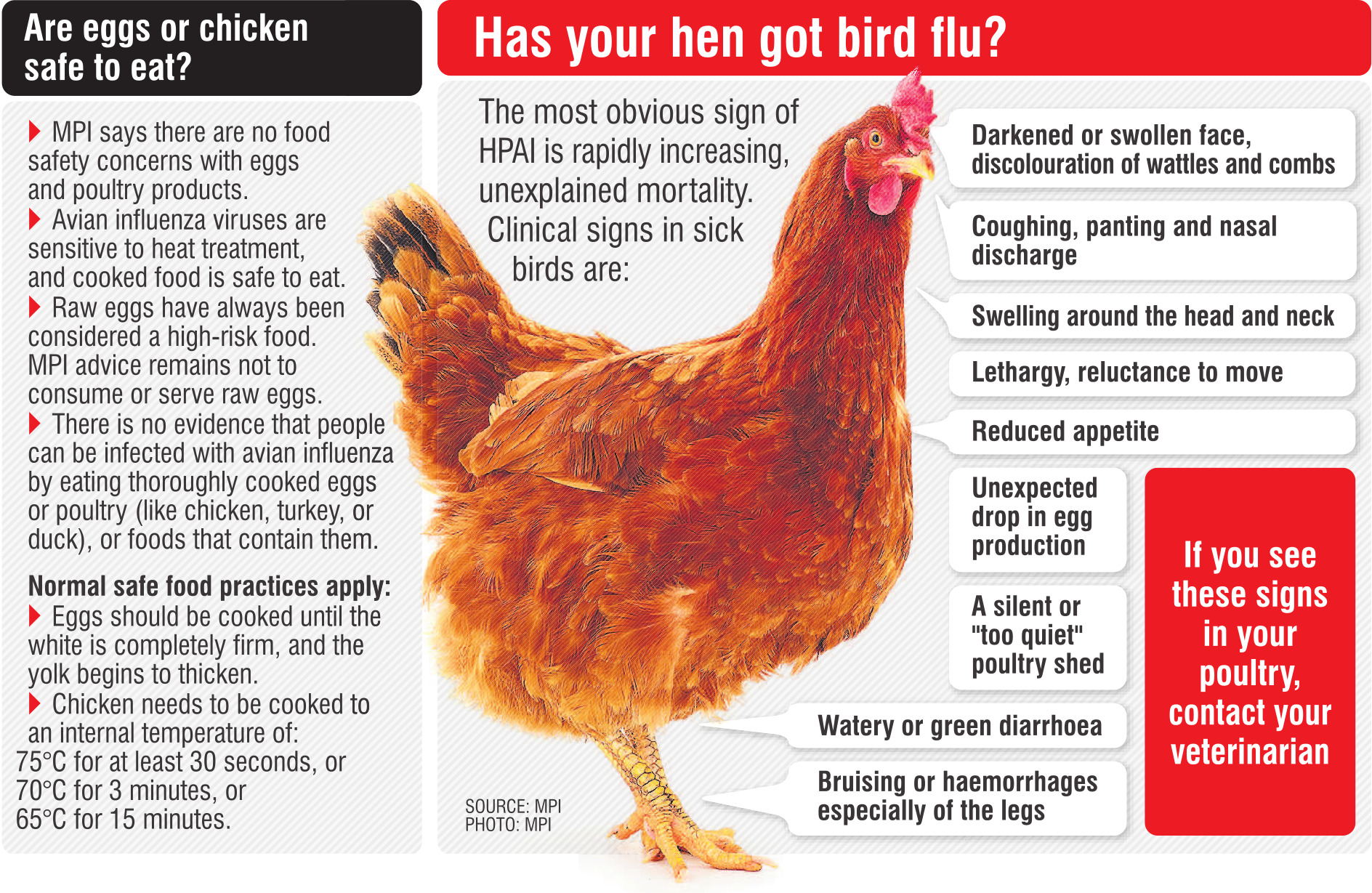
MPI said yesterday initial test results appeared promising, but testing would be required in the area for up to three weeks after the H7N6 strain of avian flu was confirmed at a Mainland Poultry farm at Hillgrove, near Moeraki, last weekend.
MPI chief veterinary officer Dr Mary van Andel said the ministry’s response included about 100 staff nationally.
"Highly pathogenic avian influenza is a significant animal health event for any country. With the disease in a poultry shed, those chickens cannot continue to produce.
"It's not something that we can allow to continue in poultry sheds and, for that reason, we're taking the stamping-out approach and depopulating those infected farms and the sheds on the infected farms.
"It is a very fast-moving disease."
Two poultry farms, Hillgrove and a smaller free-range farm near Dunedin with only about 6000 birds, have been issued notices restricting movement on and off the farm.
At Hillgrove a cull of about 80,000 birds in two of its four sheds is under way.
Testing was under way at the two farms under notices and five other Mainland Poultry farms with connections to Hillgrove, Dr van Andel said.
About 1000 samples from the seven farms were being analysed at MPI's state-of-the-art laboratory in Wallaceville.
At the Dunedin control centre, local staff were being supported by epidemiologists, veterinarians and biosecurity specialists.
"At the front line there, we're sending more people continuously."
The national response included not only laboratory staff, but also trade and market access specialists, she said.
The H7N6 bird flu outbreak in Otago was not the highly pathogenic avian influenza H5N1 strain causing serious issues for poultry, wild birds and mammals overseas.
"What's happened here is something that happens intermittently all over the world.
"A low pathogenic strain of avian influenza that's circulating in wildlife spills over into commercial poultry, gets passed between commercial poultry individuals and mutates and then becomes a high pathogenic strain.
"However, many of the principles about having good biosecurity remain the same."
Biosecurity New Zealand's deputy director-general Stuart Anderson said initial test results were promising, but testing would need to continue for weeks.
"The first batch of results, and ongoing monitoring at Mainland Poultry's properties that have links to the Hillgrove site, show no signs of new disease at this stage, which is promising.
"However, we are continuing rigorous testing as the disease has an incubation period."
No signs of production loss or ill birds at Mainland Poultry's five other properties had been observed to date — but MPI would continue its close monitoring.
Rigorous testing would need to continue over the coming weeks and Biosecurity New Zealand would take action as required, he said.
"The incubation period for the virus is usually three to 14 days, with a possibility up to 21 days, so testing will continue over the next two to three weeks."
Department of Conservation (Doc) biosecurity manager Clare Stringer said there was no evidence this strain of high pathogenicity H7N6 could spread from chickens back into wild birds.
The risk to human health from the strain also remained low.
There had been no reports of illness among wild birds near the chicken farm, but Doc was working with MPI to monitor wildlife health at key sites in the vicinity of the outbreak, she said.













